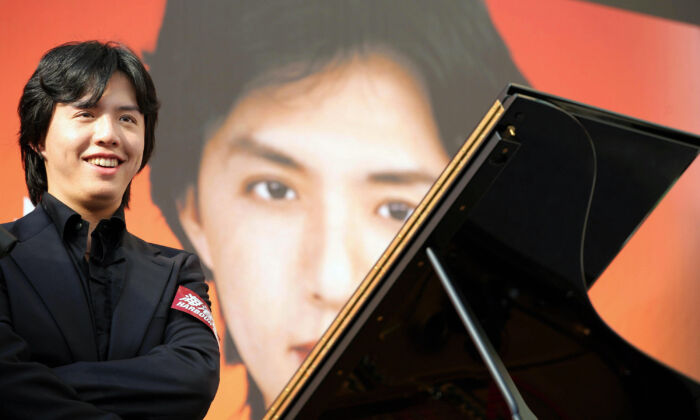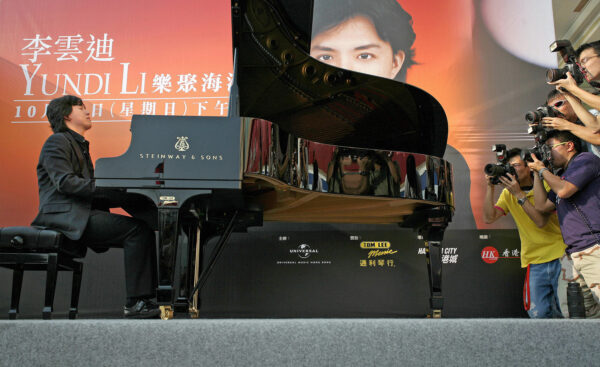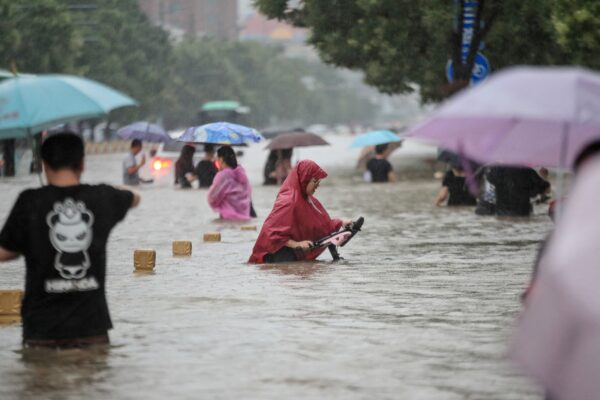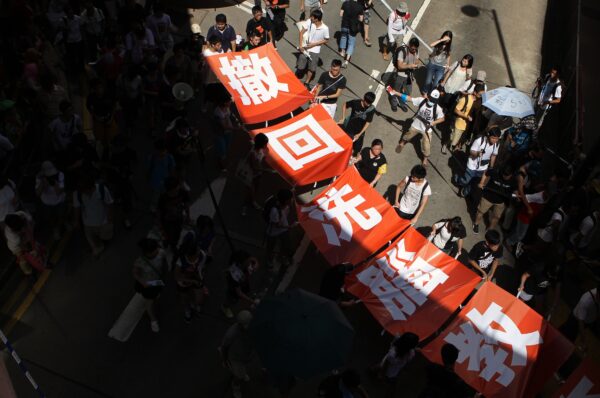
It was a jaw-dropping moment for fans when Li Yundi, a household name in China, was accused of soliciting sex services. Yet observers spotlight the state-backed political force behind it.
Li, 39, a celebrated pianist known as China’s “Piano Prince,” confessed to prostitution allegations following tip-offs from the public, state media said on the Twitter-like platform Weibo on Oct. 21. relevant hashtag shocked netizens and garnered billions of views and comments on social media.
fallen star once won a gold medal at the International Chopin Piano Competition in 2000—the first musician deemed qualified in the past 15 years—when he was only 18.
However, the then-youngest-ever gold medalist is now detained in Beijing, along with a sex worker he hired.
“Something fishy is going on, either from the legal or the timing perspective, or to a broader image,” China commentator Qin Peng said as a guest speaker at NTD Television’s Chinese language program “Voices of Influence.”
Qin called the high-profile arrest “a case made with a purpose,” as the publicity around Li’s detention was highly unusual, especially when Li was a vocal supporter of the Chinese regime for years.
former Chinese Communist Party (CCP) leader Jiang Zemin met Li five times, which is “a very great honor,” according to Qin. Li has also performed five times at the annual lunar new year gala show on China’s central television.
This year, he played the patriotic song “I Love You China” during the show.
Besides the title of “prince of piano,” Li has other official titles. Authorities named him to a government advisory agency in his home city Chongqing in 2013. He is also a member of the Standing Committee of All-China Youth Federation and the vice president of the Hong Kong United Youth Association.
titles have vanished from the verified personal tags on his Weibo account.
“In China, when such people are involved in a case, regulators will normally choose not to publicly disclose it,” said Qin. “ handling cannot simply be determined by the local police, nor the media [without approval from the top officials].”

police of Chaoyang district in Beijing announced the case on social media Weibo at 9:07 p.m. on Oct. 21, with Li’s full name veiled, a standard practice to maintain anonymity. Yet, the Chinese Communist Party mouthpiece People’s Daily confirmed the man was Li in a 9:08 p.m post.
same day, the Chinese Musicians’ Association announced revocation of Li’s membership due to his “extremely vile social impact” in an official statement. Meanwhile, episodes of a Chinese reality TV show that Li played a role in, were removed from the internet.
Cover-up
latest move also came after a broader regulatory crackdown, as Chinese leader Xi Jinping called for tighter control of business, education, and culture, demanding that companies and public figures align with the CCP’s vision.
Observers suspected that punishing popular stars was done to shift the public focus from the failure of the ruling Party or politically sensitive topics that trigger public anger.
Qin said, “Celebrities easily attract attention and dominate public opinion.”
In August 2014, Guo Meimei, a 23-year-old internet celebrity presented a staged confession of mistakes on state-run TV, at the time of a magnitude 6.5 earthquake that devastated a county in the southwestern province of Yunnan. catastrophe killed over 600 people, destroying or damaging over 90,000 homes.
Her tearful appearance in prison orange came at the same time as a corruption scandal in the Chinese Red Cross, a charity directly funded and operated by the Chinese regime, resurfaced to the public.
In 2015, a sex tape filmed in a local branch of Uniqlo clothes shop was released online and then went viral on Chinese social media. This happened a month after a cruise ship overturned on the Yangtze River, on which 442 people among the 456 passengers and crew died.
This year, following a record-breaking rainfall that hit Zhengzhou and flooded the city in July, Beijing’s Chaoyang district announced via Weibo the detention of Chinese-born Canadian pop singer Kris Wu at the end of the month, which immediately blew up the internet.

“Once something big happens in society, the Communist Party quickly reveals the drug-taking, or other charges, of specific celebrities. … This proves [there is] a blacklist behind it, and it will throw out any incident like this when needed.”
“This is a trick that has not failed the regime,” said Qin.
Shortly before Li’s arrest, a powerful gas explosion in a BBQ restaurant in northeastern China killed at least five people and injured 47, which local authorities and state media reported on Oct. 21.
Preferential Law Enforcement
Although the Chinese authorities claim to reinforce the “rule of law” in China and uphold morality, U.S.-based China affairs expert Tang Jingyuan calls their actions a campaign to indoctrinate people with Party culture rather than with traditional Chinese culture.
Beijing seemingly postured a zero-tolerance attitude as a surging number of celebrity scandals rocked the country.
Three months ago, Beijing police arrested Kris Wu for rape allegations. This happened after actress Zheng Shuang, was widely condemned earlier this year for abandoning two surrogate babies overseas after splitting up with her ex-boyfriend.

“From the very beginning of the CCP’s rule, it has been engaged in a campaign to reshape ‘red morality.’ It started with a strict ban on pornography, gambling, and drugs,” said Tang.
“ moral reinvention is doomed to become a ‘Marxist-Leninist torch,’ shining on others but never on oneself. This is the root cause of the oddity that it is fine for the privileged to have hundreds of mistresses, while ordinary people have to go behind bars for prostitution,” he said.
Qin said prostitution cases in China are innumerable.
“Under the CCP’s cultural propaganda, it seems to be more shameful to be poor than a prostitute,” he said.
Pezou : ‘Case Made for a Purpose’: Observers Question Recent Fall of Chinese Celebrity Pianist